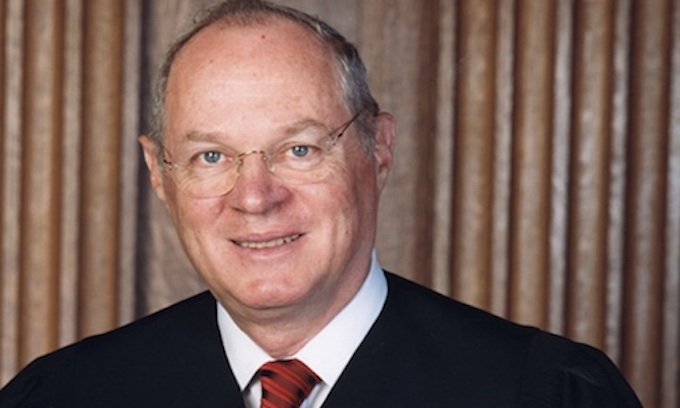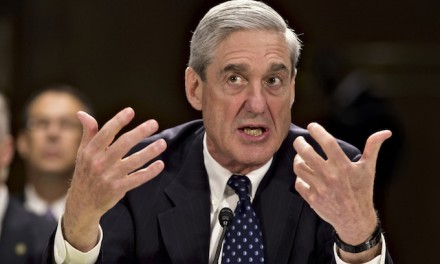Perennial swing voter Justice Anthony M. Kennedy was once again the center of attention as a closely divided Supreme Court tackled the case of a Christian baker who refused to make a wedding cake for a same-sex couple, a case highlighting the clash between First Amendment freedoms and respect for gay rights.
With the court’s four liberal and four conservative justices appearing split, the centrist Justice Kennedy posed pointed questions for both sides in what court watchers are calling it the biggest case of its kind since the high court legalized same-sex marriage nationwide in 2015. A decision is not expected until sometime next year on whether a devout Christian such as baker Jack Phillips can be forced to sell a decorative wedding cake to a gay couple who walked into his Masterpiece Cakeshop five years ago in Lakewood, Colorado.
In his questioning, Justice Kennedy appeared to find merit in arguments from both sides.
“Tolerance is essential in a free society. And tolerance is most meaningful when it’s mutual,” he said at one point in the briefing before a packed courthouse. “It seems to me that [Colorado] in its position here has been neither tolerant nor respectful of Mr. Phillips’ religious beliefs.”
But Justice Kennedy, who wrote the 2015 decision making same-sex marriage legal, also suggested that displaying a sign outside a storefront that says a business doesn’t serve same-sex weddings would be an affront to the gay community.
The Trump administration has backed Mr. Phillips, who argued that his free speech right to express himself artistically through his cakes was infringed when Colorado’s Civil Rights Commission ordered him to bake cakes for everyone, regardless of their sexual orientation. He has said he does not discriminate in his business and would happily sell gay customers any other cakes on offer in his bakery.
But lower courts largely rejected the free speech argument, ruling instead that Mr. Phillips violated Colorado’s anti-discrimination law by refusing to create the wedding cake for Charlie Craig and David Mullins. Colorado’s law makes it illegal for businesses to discriminate against people based on sexual orientation, race or religion. More than 20 states have similar laws.
Gay rights activists say a ruling for the baker could blow a massive hole in civil rights and anti-discrimination laws, allowing business owners to claim all kinds of religious exemptions to avoid complying with fairness laws. But Mr. Phillips’ defenders say his faith and his freedom of expression as an artist override those claims.
“Dignity cuts both ways,” said Kristen Waggoner, an attorney with Alliance Defending Freedom, a religious liberty law firm representing Mr. Phillips.
She argues that Mr. Phillips’ wedding cakes are works of art and that he shouldn’t be forced to express messages through his custom cakes that violate his conscience.
Justifying discrimination
Chief Justice John G. Roberts Jr., Justice Samuel A. Alito Jr. and Justice Neil M. Gorsuch joined Justice Kennedy in critically questioning the Colorado Civil Rights Commission’s handling of Mr. Phillips’ case.
At one point during oral arguments, Justice Kennedy asked about the comment from one member of the commission who said freedom of religion was used to justify discrimination.
“Did the commission ever disavow or disapprove of that statement?” Justice Kennedy questioned.
Justice Gorsuch brought up a second member of the commission, who he said made similar comments.
“Suppose we thought there was a significant aspect of hostility to a religion in this case. Could your judgment stand?” Justice Kennedy asked Frederick Yarger, solicitor general of Colorado.
“If there was evidence that the entire proceeding was begun because of an intent to single out religious people — absolutely, that would be a problem,” said Mr. Yarger.
Legal analysts say Justice Kennedy is the critical vote in this case because he has been favorable to LGBT rights but also has a record of siding with the conservative justices on First Amendment issues.
Carrie Severino, chief counsel of the conservative Judicial Crisis Network, said religious freedom advocates should be encouraged after Tuesday’s 75-minute argument.
“His passion was evident when he pointed out how intolerant the state of Colorado had been of baker Jack Phillips’ beliefs,” Ms. Severino said.
The American Civil Liberties Union, which is representing the same-sex couple, argued that the court had rejected the notion that businesses can skirt anti-discrimination laws through First Amendment claims in the past.
Mr. Phillips “refused to sell them any wedding cake,” said David Cole, an attorney for the ACLU, adding that the baker engaged in identity-based discrimination.
Justice Ruth Bader Ginsburg and Justice Elena Kagan appeared sympathetic to the same-sex couple. Each questioned where to draw the line if a cake baker can claim special privileges as an “artist.”
“Makeup artists might feel exactly as your client does,” said Justice Kagan. “Why wouldn’t … that also count?”
“Because it’s not speech,” Ms. Waggoner said.
Justice Sonia Sotomayor rejoined that a cake is just food. “In the end, its only purpose is to be eaten,” she said.
Justice Stephen G. Breyer appeared to seek a middle ground — or an exemption — to the state’s public accommodation conflict for people with sincerely held religious beliefs, asking for a suggested fix from Colorado’s solicitor general.
“I can’t think of a way to do it,” the justice said. “Maybe you can’t think of a way to do it, but I thought it’s worth asking.”
Cynthia Coffman, Colorado’s attorney general, released a statement following the court’s hearing in response to Justice Breyer’s question without naming him specifically.
“Our state and our Constitution has deep respect for the right of all people to follow their faith and speak their minds. But it would be a mistake in deciding this case to create new exceptions to anti-discrimination laws,” Ms. Coffman said.
© Copyright (c) 2017 News World Communications, Inc.



















Recent Comments